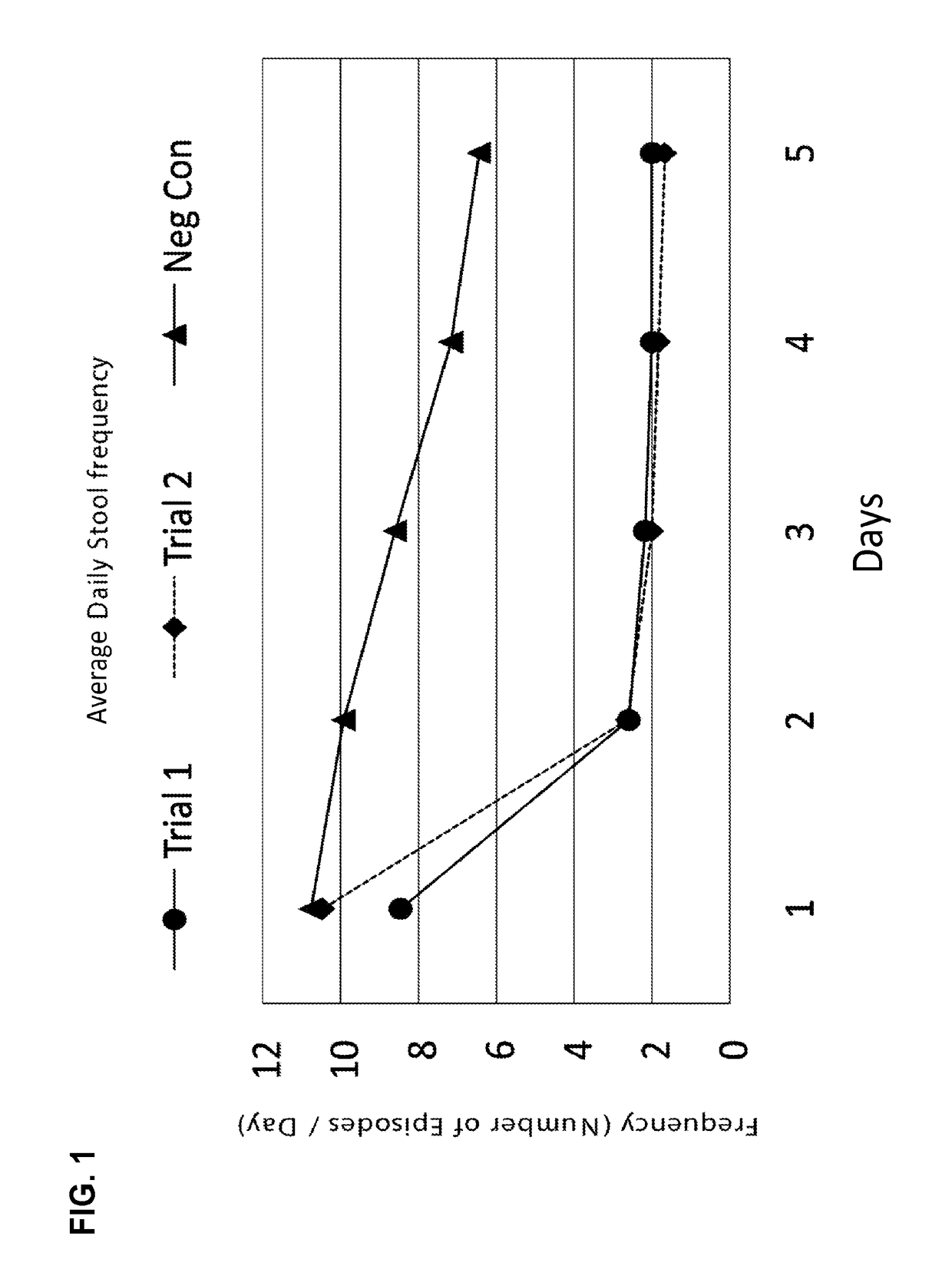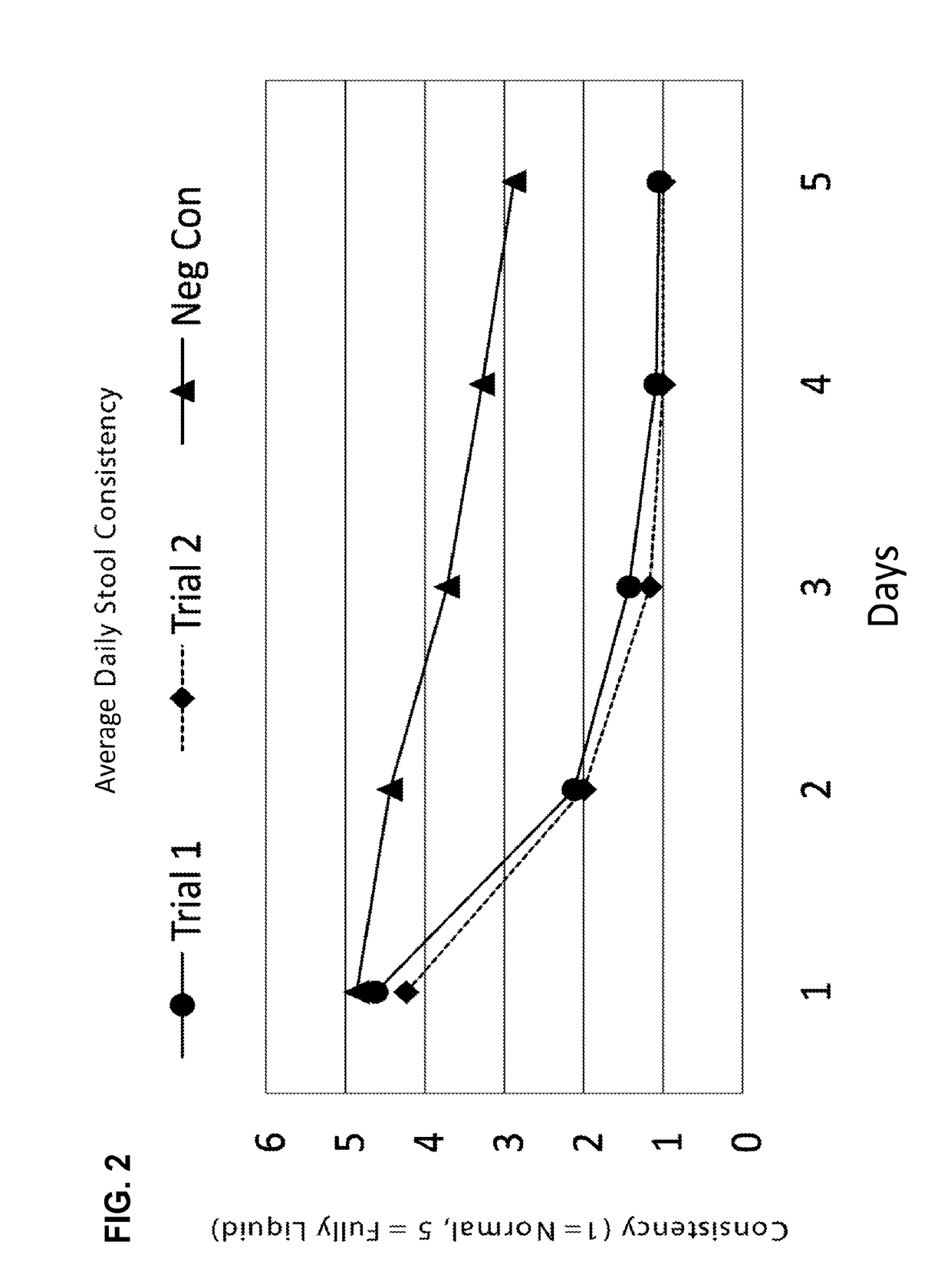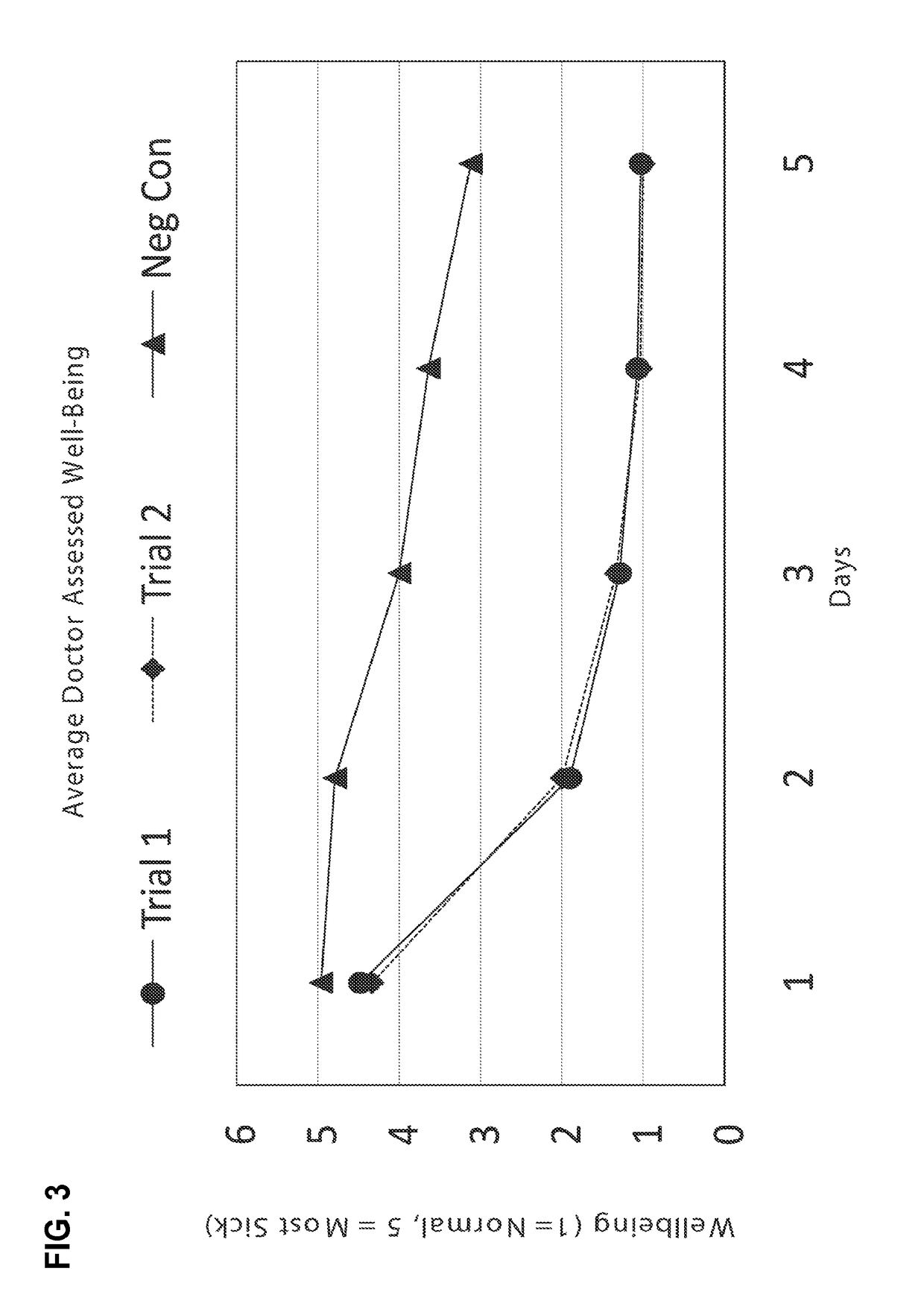Compositions and methods for treatment in broad-spectrum, undifferentiated or mixed clinical applications
a broad-spectrum, undifferentiated or mixed technology, applied in the field of compositions and methods for passive immunization, can solve the problems of 1.5 million deaths a year, usually considered an error or failure to achieve binding specificity, and excessive binding attributes
- Summary
- Abstract
- Description
- Claims
- Application Information
AI Technical Summary
Benefits of technology
Problems solved by technology
Method used
Image
Examples
example 1
ons for the Treatment of Diarrhea
[0206]Diarrhea is a symptom of a broad range of causes including bacterial, viral, protozoal and parasitic infections. Bacterial diarrhea is induced by multiple organisms, including various forms of Escherichia coli, Salmonella, Vibrio cholerae and parahemolyticus, Shigella, Campylobacter, Yersinia and others. Viral pediatric diarrhea is often caused by Rotavirus, but also may be caused by several other viruses.
[0207]There are known to be multiple causative organisms in diarrhea. These causative organisms can be organized into common clusters that produce structurally related toxins, to which a series of broad-spectrum neutralizing antibodies can be created that, when admixed into a formulation with clinically effective titers, can be used as a broad-spectrum organism-independent therapeutic intervention for toxin-mediated diarrhea.
[0208]Briefly, antibodies specific to causative organisms of diarrhea are generated by inoculation of chickens with anti...
example 1a
[0210]Chickens were individually inoculated with purified antigens derived from 5 E. coli strains: four ATCC strains, containing E. coli adherence pili antigens F41, 97P, F19 and K99, and one wild type E. coli strain derived from milk. Each chicken was inoculated with only one antigen. Chickens were inoculated once per week for three weeks. Freund's adjuvant was employed for the first inoculation, followed by Freund's incomplete adjuvant for the second and third inoculations. Two shots, left and right breast were used per inoculation. Eggs were housed separately; eggs were collected, flash pasteurized and spray dried. Each of the five antibody preparations were mixed in equal parts. The dried egg powder anti E. coli antibody preparation was stored frozen for about 2 years.
[0211]A second flock of chickens was inoculated with a mixed antigen preparation containing rotavirus, coronavirus and E. coli antigens. The same inoculation, collection and egg processing protocols were employed a...
example 1b
[0213]Three flocks of chickens were individually inoculated with one each of different mixerd antigen preparations: a first antigen preparation containing rotavirus (serotypes G6 and G10), coronavirus, enterotoxigenic E. coli stains with K99 pili adherence factor, and Clostridium perfringens type C toxoid with adjuvant); a second preparation containing enterotoxigenic strains of E. coli having K99, K88, 987P or F41 adherence factors); and a third mixed antigen preparation containing various E. coli endotoxin; with adjuvant). Each of three flocks only received a single mixed antigen preparation. Eggs were collected, cleaned, broken, pasteurized and spray dried or thermal dried to create three dried immune egg products. Dried egg product was optionally evaluated by ELISA for specific IgY activity. An equal weight of each of the three dried immune egg products was combined with 3 g or 4 g of dried colostrum in a single dose packet. Either 2 g, 3 g, or 4 g of combined weight of dried im...
PUM
 Login to View More
Login to View More Abstract
Description
Claims
Application Information
 Login to View More
Login to View More - R&D
- Intellectual Property
- Life Sciences
- Materials
- Tech Scout
- Unparalleled Data Quality
- Higher Quality Content
- 60% Fewer Hallucinations
Browse by: Latest US Patents, China's latest patents, Technical Efficacy Thesaurus, Application Domain, Technology Topic, Popular Technical Reports.
© 2025 PatSnap. All rights reserved.Legal|Privacy policy|Modern Slavery Act Transparency Statement|Sitemap|About US| Contact US: help@patsnap.com



